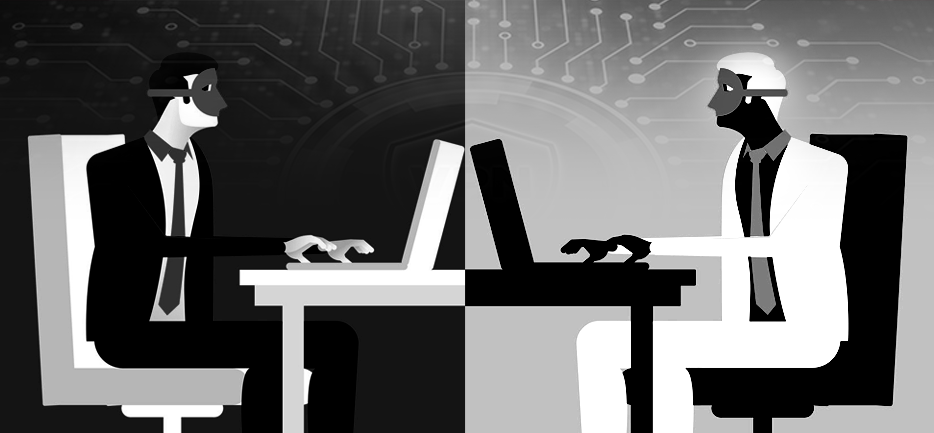Published Feb 29, 2020 by Xiph
Just like ‘sheep’ or ‘sheeple’ the term ‘user’ is used to herd, control and insult you.

We know that our personal data is a commodity. We know that Big Tech are constantly looking for new ways to collect it. We know that they aren’t even remotely upfront about what they do with it once it’s collected. We thought we knew a lot, until the release of Shoshana Zuboff’s 2018 book – The Age of Surveillance Capitalism. The Harvard professor, dubbed “the Karl Marx of our time”, isn’t content with peeking behind the curtain – she aims to pull the whole thing down so we can see what’s really going on. And what’s really going on is more frightening than the most frightening of horror films.
Attempting to boil down Zuboff’s revelations, insights and theories into a single article would be doing her a disservice, so here’s a taste of what to expect.
Data isn’t a commodity, it’s THE commodity
Back at the turn of the century, most of our personal data was considered garbage, or ‘digital exhaust’. Nobody would have thought that the same information would end up driving an economy. Products are now created less for their function and more for their ability to generate a ‘behavioural surplus’, or in other words, to collect more data than is required to improve that product. The higher the behavioural surplus, the more data is collected. The more data is collected, the more investors come running.
Examples of this new attitude towards product development are everywhere. With Android phones, Google realised that pouring money into the manufacturing of high-quality mobile devices would only lead to a more expensive product. The smarter option was to make and sell cheap handsets so that more people would buy them and therefore more data could be collected. Ford Motor Co. ignored pressures to focus investment on carbon-free vehicles and instead repurposed existing designs as surveillance vehicles – full of high-tech features (such as cameras, trackers) that are advertised as perks for the consumer but are really highly-lucrative, data-collecting mechanisms. Yes, we now live in a world where Ford wants to be more like Facebook.
Pokemon Go is not a game
On the surface, Pokemon Go is that megahit of an augmented reality mobile game that saw people all over the world running around town catching invisible and equally loveable cartoon characters. It was easier to get behind due to the fact that it was developed by Niantic Labs, who were marketed as a start-up. In reality, Niantic Labs is owned by the pioneers of surveillance capitalism, Google – and Pokemon Go is a highly sophisticated method of mass mind control.
Before you object to such extreme language to describe such a seemingly innocuous game, know this: the rewards and punishments of Pokemon Go are designed to herd users to establishments that have paid for your presence. Starbucks, McDonalds and a long list of other corporations have all made a fortune from a game that forces you closer and closer to their cash registers. What makes this so frightening is that it all takes place on a subconscious level. We think we’re being entertained and it’s almost impossible to realise that we’re being shepherded around like sheep – literally. And every move we make is being tracked, analysed and sold to the highest bidder.
Google Nest and nested truths
As you’re no doubt aware, Google Nest is the name given to a series of smart appliances for the home. Through the sale of speakers, thermostats, smoke detectors, security systems, routers and even doorbells, Google claims to be increasing the security of your home while they unashamedly monitor every minute of your private life.
Take the Google Nest thermostat, the flagship product of the series. Not long after the product had taken off, an independent engineer took apart the product and discovered a curious bit of hardware; one that doesn’t show up on a single design or schematic – a microphone. Why an appliance that was built to control the temperature of a room would require a microphone was anyone’s guess. Of course, we know now that it was installed in order to record user conversations.
How did Google respond? By claiming they had no idea the microphone existed. This is how Google and Facebook and other tech giants seem to respond to any accusation of wrongdoing, they play dumb, deny and as Zuboff reveals “blind us with entertainment”. To make matters worse, it was discovered that if you wanted to understand how Google Nest handles privacy, you would be forced to review at least A THOUSAND privacy contracts within the terms and conditions. And if you wanted to opt out of agreeing to such terms and conditions, your Google Nest would no longer receive upgrades and would lose its functionality. We’re being blackmailed into handing over our every action.
The next frontier
Big Tech are no longer satiated by manipulating our online behaviours. The ultimate goal is to now target our actions and mindsets within the real-world. A leaked email from Australian Facebook engineers to business partners bragged about the social media platform’s ability to predict and therefore prey on mood shifts in the population. Cambridge Analytica was found to have so much data that they could understand our inner demons and therefore directly target our fear, paranoia and emotions to not only make us click on a certain website, but vote for certain candidate. It’s now clear that Big Tech has the ability to know exactly when large numbers of the population are at peak vulnerability and susceptible to manipulation.
Governments and tech corporations are already in bed together and now that the former know that the latter has the ability to predict, monitor and even manipulate private lives, all bets are off. If this technology were to get into the hands of a government with overtly sinister motives, our very futures could end up on the line. It’s no longer the time for mild concern or passing worry. Surveillance capitalism has invited Big Tech into our minds and hearts and they’ve done it all without us knowing. If that’s not frightening, then we don’t know what is.
Privacy is the last frontier and we need to be brave enough to make it our own.
Posted in: Security


